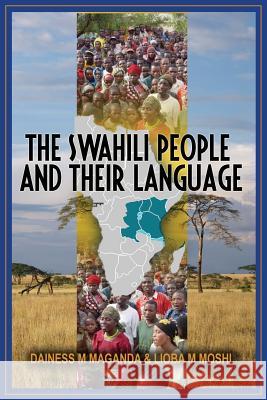The Swahili People and Their Language: A Teaching Handbook » książka
The Swahili People and Their Language: A Teaching Handbook
ISBN-13: 9781909112445 / Angielski / Miękka / 2014 / 250 str.
Table of Contents Chapter I: Introduction.....................................................15 Why this Book...................................................15 Overview..........................................................16 Framing the Location..........................................16 The Swahili Coast..............................................19 Chapter 2: The Coastal Towns............................................27 Chapter 3: The Livelihood of the Coastal People...................81 Introduction.....................................................81 Chapter 4: Theories, Archeology Discoveries and Historical Chapter 5: The Kiswahili Language....................................117 What do the People Say about the Roots of Kiswahili.........................................................117 Cross- Cultural Influences on the Kiswahili Coast....119 The Spread of Kiswahili.....................................121 vi Vernacular and Proselytism................................122 Missionaries versus Policy-makers.......................123 The Colonial Period..........................................123 The Face of Kiswahili........................................126 Detribalization.................................................127 Urbanization...................................................129 Secularization..................................................129 Chapter 6: Functions of Kiswahili.......................................133 Chapter 7: The Global Status of Kiswahili...........................157 Concluding Remarks.........................................174 ______________________________________ Dr. Dainess Maganda is the Director of the African Languages Program at the University of Georgia. She teaches Swahili language and culture in the Comparative Literature Department. She has published articles on language ideologies and on pathways to promote the use of African languages in schools in the US and internationally. Her publications include, "Through His Eyes: How Culturally Relevant Texts Impacts Reading Experience," and "Using Literacy Practices to Promote Positive Perspectives of African Languages." She is also a poet, notable for published poems such as, "Who am I." Dr. Lioba Moshi is a distinguished University Professor and the head of Comparative Literature Department at the University of Georgia, USA. She teaches Linguistics and Swahili in the USA and has also taught Swahili in Tanzania and England. She is the author of a number of publications including "Democracy and Culture: an African perspective (Co-edited), and the Pedagogy of African Languages: An Emerging Field (Co-edited, )" She has also developed a series of videos and online teaching materials to help students learn the Swahili language and culture.











